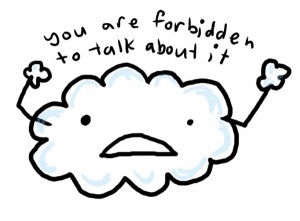A very frequent refrain when it comes to forensic science laden cases among Defense attorneys is that they cannot get discovery in a meaningful way.

In general, the discovery process is the exchange of information from the prosecuting agency to defendant’s counsel. There is the requirement that prosecutors give over to defense counsel all exculpatory information, but generally, with some notable exceptions, prosecutors are not required to exchange inculpatory information with the defense.
What does this mean in a forensic science case?
Where does scientific evidence fall in the inclupatory versus exculpatory scheme?
In practice it is a very tough question. Clearly, if done 100% properly, such evidence can be inculpatory. However, if it is not conducted properly, then such evidence is potentially or actually exculpatory. It is not like a police report or a witness statement which any lay person can look at and see the exculpatory nature of it. It is hyper-technical information that may not be patent on its face.
So again we come back to: what does this mean in a forensic science case?
In most states there is a separate obligation of varying degrees that intended expert witness testimony to be used during trial must be disclosed.
What does this mean in a forensic science case?
Where is the line?
It is suggested that the best policy is for the proponent of the alleged scientific evidence is to allow for a free and total examination of all of the uninterpreted raw data. This is the way of science. Hiding and not being transparent is advocacy.

I understand that the government’s typical response to the above suggestion is that to do so would take too much time and too much effort. In other words, it would be a logistical nightmare and not practical. The heavens would fall or so they claim.
But would it? Of course not!
It must be stressed that at first glance this suggestion appears seemly voluminous to the uninitiated or the underexposed. However these documents in an accredited laboratory are required to not only exist, but must be “readily available” and accessible and organized in a manner that allows easy retrieval upon demand of auditors or technical reviewers per the Standards referenced[i].
All of these items requested are necessary in order to independently assess the validity of the conclusory opinion offered by the testing or calibration laboratory. In fact, the various organizations that produce the International Standards (IS) and other standards that are referenced herein have similar statements as to the need to provide sufficient documentation. For example ILAC in its ILAC-G19:2002 reads: “[I]n general, the records required to support conclusions should be such that in the absence of the analyst/examiner, another competent analyst/examiner could evaluate what had been performed and interpret the data”[ii]. ASCLD/LAB in its standards reads: “The laboratory must create and maintain a uniquely case record for all administrative and examination documentation generated and/or received by the laboratory for each case involving the analysis of evidence.”[iii] In the corresponding “Discussion” section, the standard reads:
A laboratory case record consists of both examination documentation and administrative documentation which may be received or generated by the laboratory. The laboratory must maintain each case record…
Administrative documentation includes laboratory reports, records of case-related conversations, evidence receipts, description of evidence packaging and seals, subpoenas, investigative reports and other pertinent information.
Examination documentation is usually generated by the laboratory and includes references to procedures followed, tests conducted, standards and controls used, diagrams, printouts, photographs, documentation of observations, and results of examinations on evidence.
In its most recent standard, ASCLD/LAB International Supplemental Requirements-Testing: 2006 states clearly as follows: “Documentation to support conclusions shall be such that in the absence of the analyst, another competent analyst or supervisor could evaluate what was done and interpret the data[iv].” Further other standards producing bodies such as the Scientific Working Group for the Analysis of Seized Drugs (SWGDRUG) in its publish standard writes: “Analysts shall…make and retain full, contemporaneous, clear and accurate records of all examinations and tests conducted, and the conclusions drawn, in sufficient detail to allow meaningful review and assessment of the conclusions by an independent person competent in the field.[v]
[i]For example, ASCLD/LAB Legacy Accreditation Manual:2005 1.4.2.22 (E)
[ii] ILAC-G19:2002 4.12.2.1.
[iii] ASCLD/LAB Legacy Accreditation Manual:2005 1.4.2.14 (E).
[iv] ASCLD/LAB International Supplemental Requirements-Testing: 2006 4.13.2.5
[v] SWGDRUG Recommendations, 5th Edition, 2010-01-29, Part I-A (Code of Professional Practice for Drug Analysis), 2.2(d). Later in Part IV-A 9.1.1, it reads: “Documentation shall contain sufficient information to allow a peer to evaluate case notes and interpret the data.” ASCLD/LAB International Supplemental Requirements-Testing: 2006 5.4.1.1 reads that “All methods shall be documented and the documents readily available for review by laboratory personnel.”



Erik Brown says:
Funny story. Just today in a DUI trial the prosecutor started in on why I hadn’t reviewed X, Y, and Z in this case.
My answer was basically discovery is so limited and tightly controlled through your office, I’ve given up on asking for anything you don’t automatically give out.
Justin J. McShane says:
Ha Ha. That is sadly funny. I thought in science, which this is supposed to be, is characterized by verification. Somehow in the US Court system, science has turned into the antithesis of verification which is “trust me, I am from the Government, I am here to help”.